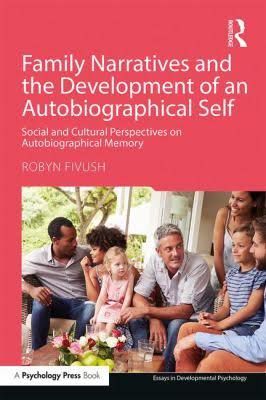Gratitude
The Story of a Book
Family narratives and the development of an autobiographical self
Posted March 2, 2019
It has been too long since I have posted to this blog. I have lots of reasons (and excuses!) but will only mention two here: First, I was engrossed in finishing my book, which has now been published: Family Narratives and the Development of the Autobiographical Self. (More on this in a minute.) Second, I have transitioned professionally, and am now directing the Institute for the Liberal Arts at Emory University, a position that allows me to focus on the power of telling and hearing our stories across multiple contexts – the classroom, the university and the community. (More about that in my next post.)

Obviously, I am extremely proud of my book. What a feeling of accomplishment. But in the process of writing, proofreading, and re-reading, I became even more aware of the power of stories to shape our lives. In many ways, the book itself is the story of my research career, from early beginnings with my mentors, Katherine Nelson and Dick Neisser, who helped shape my story, to working with my graduate students, who helped elaborate my story. Through this all, we learned the importance of stories, especially within families, for promoting positive child outcome. But we could not have done this without all of the families that so graciously participated in our research over the past these decades. These families opened their homes and opened their hearts to us; listening to their stories changed our story, and their stories are the backbone of this book. Writing the book helped me bring all of these threads together, and weave a new story about family storytelling.
The first part of my book focuses on early childhood, the ways in which parents and preschoolers construct stories about their shared past, stories that define not just what happened but what it means for the child emotionally, and how it binds parent and child together through a shared history. These early foundations in understanding self and other through story, help children traverse their increasingly complex worlds. Parent-preschooler storytelling is related to children’s emotional understanding and regulation, their empathy and understanding of others’ thoughts and emotions, and, not surprisingly is also related to educational outcomes in literacy and even science!
With this early developmental foundation in place, adolescents are positioned to begin to explore their own identity through story: Who am I? What do I believe? What are my values and who do I want to be? These are universal human questions, and the ways in which families continue to share stories, stories both about the adolescents, but especially stories about the family, parents and grandparents, provides a context for adolescent’s growing understanding of who they are in the world. With my colleague, Marshall Duke, we have expanded the ways in which family storytelling matters for child outcome, to show all the ways in which family storytelling is important in navigating the difficult terrain of adolescence and early adulthood.
Of course, all of this has to be placed in cultural and historical perspectives. Both what it means to be a self and how to share our stories differ across cultures, and event subcultures. In my book, I explore how cultural identities, gendered identities, and racial and ethnic identities are elaborated and understood through stories.
Stories are, indeed, our life blood. In the words of Alexander McCall Smith, “A life without stories is no life at all.” I am grateful both that I had the opportunity to write this book, but I am especially grateful for all the stories that I have been privileged to hear and listen to over the years. My own story is enhanced through the stories of others.


